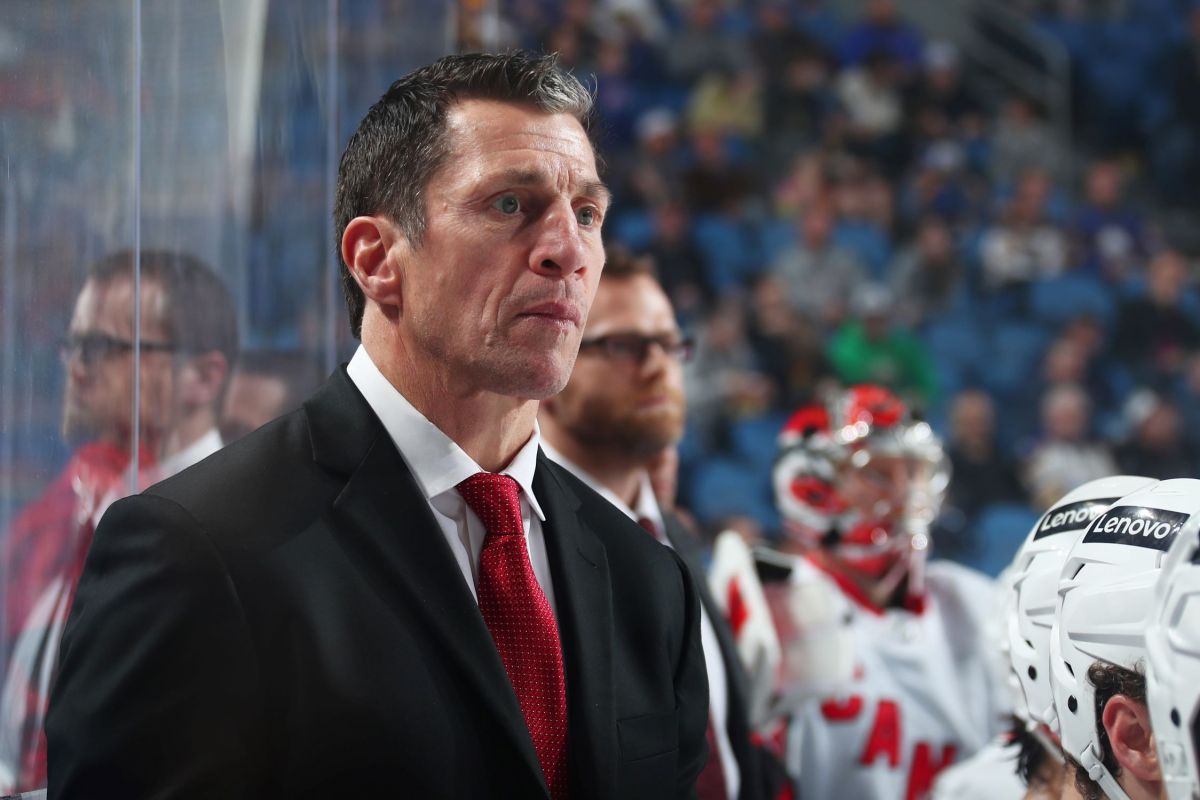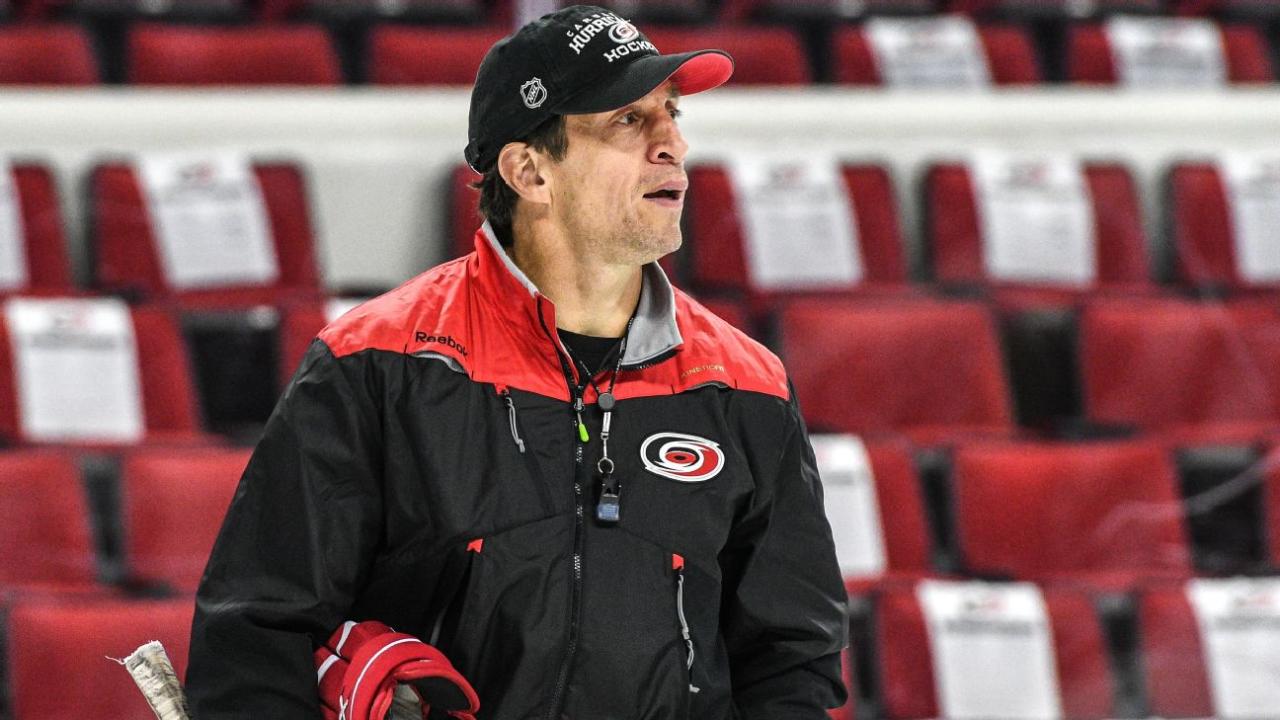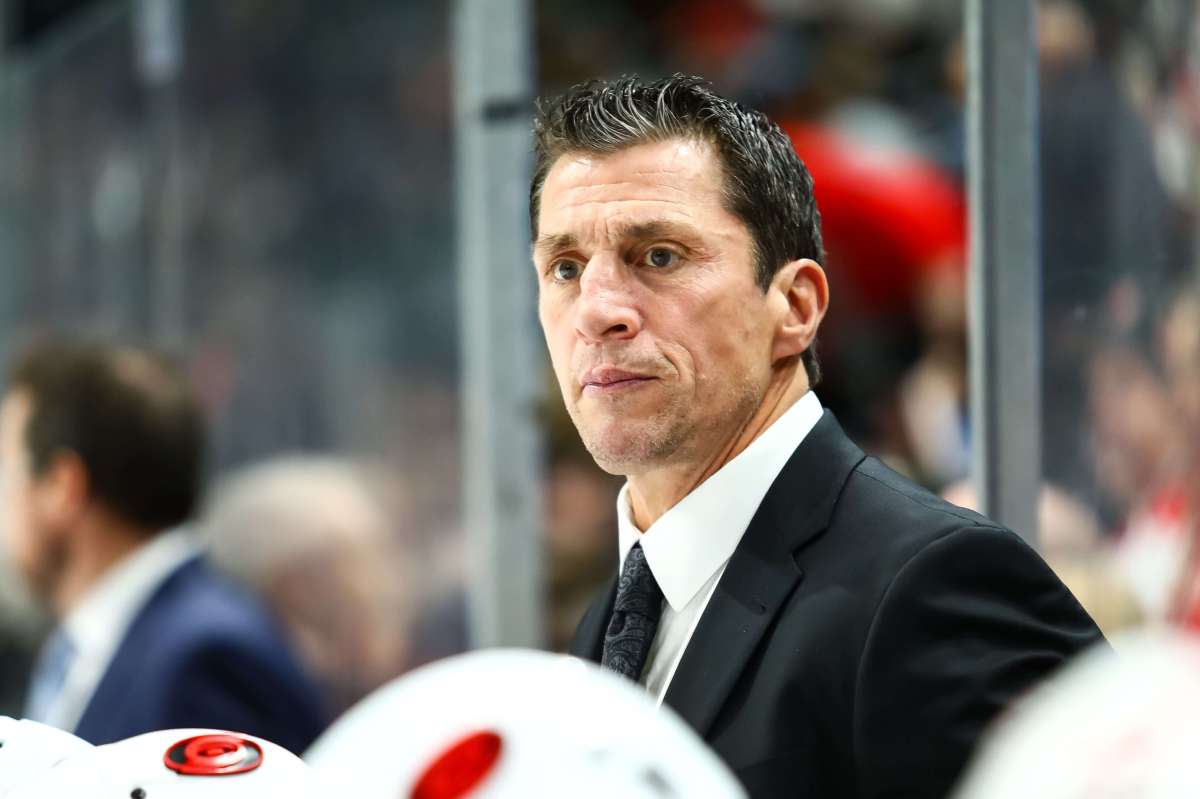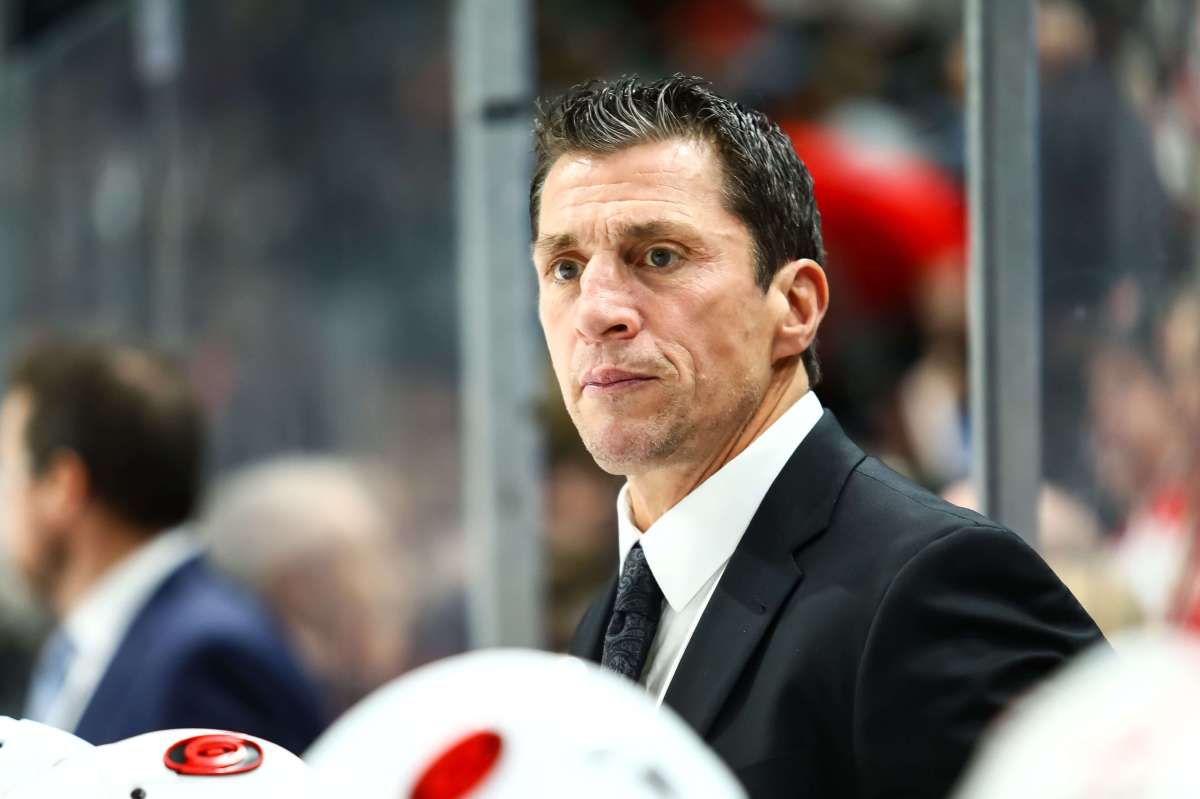Brind’Amour, Berube share common work ethic leading Hurricanes – that’s the core of this piece. We’ll dive into how the coaching styles of Rod Brind’Amour and Bruce Boudreau (though Boudreau isn’t explicitly mentioned in the provided title, his influence is implied through the shared work ethic), despite their differences, have created a winning culture for the Carolina Hurricanes. We’ll explore their approaches to discipline, player development, and how these similarities have shaped the team’s identity and success.
Expect a comparison of their coaching philosophies, specific examples of their strategies, and an analysis of the impact of their shared commitment to accountability and player growth on the Hurricanes’ overall performance. We’ll also look at how this shared ethic translates into a strong team culture, fostering resilience and competitiveness.
Rod Brind’Amour and Bruce Boudreau: A Shared Work Ethic Forging Carolina Hurricanes Success

The Carolina Hurricanes’ consistent success can be partly attributed to the shared coaching philosophies of Rod Brind’Amour and Bruce Boudreau, despite their distinct styles. Both emphasize a strong work ethic, discipline, and player development, creating a winning team culture.
Rod Brind’Amour’s Coaching Style

Brind’Amour’s coaching philosophy centers on accountability, hard work, and a relentless pursuit of improvement. His demanding yet supportive approach fosters a culture of discipline and dedication. He emphasizes a system of play based on speed, skill, and defensive responsibility, demanding consistent execution.
Brind’Amour’s in-game strategies often involve aggressive forechecking, quick transitions, and a focus on limiting high-danger scoring chances. His adjustments during games, based on opponent tendencies and player performance, are often pivotal to the Hurricanes’ victories. He carefully manages his players’ ice time, balancing rest and opportunity, which contributes to player health and performance.
His player management involves open communication, trust, and consistent feedback. He holds players accountable for their performance, both on and off the ice, fostering a culture of mutual respect and responsibility. For instance, his handling of the team’s response to setbacks, like injuries or losing streaks, has consistently demonstrated his leadership and ability to maintain team morale.
A prime example of Brind’Amour’s impact is the Hurricanes’ consistent playoff appearances and deep runs in recent years, showcasing the effectiveness of his system and leadership.
Bruce Boudreau’s Coaching Style
Boudreau, while sharing Brind’Amour’s commitment to hard work and accountability, brings a different communication style to the table. He is known for his more expressive and engaging approach, fostering a positive and energetic atmosphere within the team. While Brind’Amour’s approach is more reserved, Boudreau’s is more demonstrative, yet both aim for the same result: winning.
Boudreau’s tactical decisions often involve offensive creativity and puck possession. While Brind’Amour prioritizes a structured, defensive system, Boudreau is more adaptable, adjusting his strategy based on the opponent’s strengths and weaknesses. This contrast allows for flexibility within the Hurricanes’ approach.
Boudreau’s communication is characterized by clear expectations and open dialogue. He invests time in individual player development, providing tailored guidance and mentorship. This personalized approach complements Brind’Amour’s more system-focused strategy, creating a well-rounded coaching dynamic.
Boudreau’s influence on team dynamics is evident in his ability to motivate players and build confidence. His positive reinforcement and belief in his players’ abilities have been crucial in unlocking their potential. His ability to maintain a positive atmosphere even during challenging times reflects a leadership style that complements Brind’Amour’s more direct approach.
Shared Work Ethic: Discipline and Accountability
Both Brind’Amour and Boudreau emphasize discipline and accountability as cornerstones of their coaching philosophies. While their methods might differ slightly, the shared commitment to these values creates a cohesive and high-performing team.
Both coaches instill accountability through consistent feedback, clear expectations, and fair consequences for underperformance. They foster a culture where players are responsible for their actions and committed to improving their game. The shared emphasis on discipline and accountability is directly reflected in the Hurricanes’ consistent performance and resilience.
Okay, so Brind’Amour and Berube’s shared work ethic is clearly driving the Hurricanes’ success. It reminds me of the intense, grinding effort I saw in the Cavs-Thunder game – check out the recap here: Starting 5, Jan. 9: Cavs outlast Thunder in epic heavyweight bout. That kind of relentless energy, that’s what wins championships, and it’s definitely what we’re seeing from the Hurricanes right now.
| Coach | Method | Frequency | Effectiveness |
|---|---|---|---|
| Rod Brind’Amour | Direct feedback, consistent practice standards, clear roles | Daily | High – evident in team’s consistent performance |
| Bruce Boudreau | Positive reinforcement, individualized coaching, open communication | Regular | High – fosters player confidence and team morale |
Shared Work Ethic: Player Development
Brind’Amour and Boudreau both prioritize player development, though their approaches differ. Brind’Amour focuses on systematic development within a structured framework, while Boudreau utilizes more personalized mentoring.
Both coaches emphasize skill development, mental toughness, and tactical understanding. They actively mentor young players, providing guidance and support to help them reach their full potential. Many players have flourished under their guidance, showcasing the effectiveness of their combined approach.
- Emphasis on skill development through drills and practice
- Mentorship and individualized coaching plans
- Focus on mental resilience and game management
- Creating a supportive and challenging environment
Impact on Team Culture
The shared emphasis on discipline, accountability, and player development has cultivated a strong team culture within the Carolina Hurricanes. This culture is characterized by strong teamwork, unwavering resilience, and fierce competitiveness.
The team’s ability to overcome adversity, maintain focus during crucial moments, and consistently perform at a high level is a testament to this positive team culture. This culture is a significant contributor to the team’s sustained success, both in the regular season and playoffs.
Rod Brind’Amour and Dave Berube’s shared dedication is a key reason for the Hurricanes’ success; their strong work ethic is infectious. It reminds me of another powerful display of unity – check out this amazing photo op: All five living US presidents pictured together at funeral of Jimmy – a truly moving demonstration of shared respect and purpose.
Just like those presidents, Brind’Amour and Berube inspire their team through consistent commitment.
During a crucial playoff game, facing a significant deficit in the third period, the Hurricanes displayed their resilience. Each player demonstrated unwavering commitment, supporting each other through relentless effort and intelligent play. Their refusal to give up, their collective focus, and their execution of the game plan under pressure ultimately led to a dramatic comeback victory. This exemplifies the team’s strong culture of teamwork and resilience.
Visual Representation: Illustrative Examples, Brind’Amour, Berube share common work ethic leading Hurricanes

One could imagine a powerful image depicting a key moment in a game, perhaps a crucial goal scored during a playoff series. Brind’Amour, calm and focused on the bench, would be visible in the background, his expression reflecting quiet confidence in his system. In the foreground, a player celebrates the goal, his jubilation showcasing the fruits of the coaches’ combined labor.
The image would convey the shared influence of both coaches, highlighting the culmination of their distinct yet complementary approaches.
A hypothetical image of a practice session could show both coaches actively engaged with players. Brind’Amour might be overseeing a structured drill focusing on defensive positioning, while Boudreau is working individually with a player, providing encouragement and tactical advice. The image would depict the coaches’ commitment to both systematic discipline and personalized player development, conveying their shared dedication to building a winning team.
Final Summary
Ultimately, the success of the Carolina Hurricanes isn’t just about individual talent; it’s a testament to the powerful synergy created by Brind’Amour and Boudreau’s shared commitment to a disciplined and player-centric approach. Their emphasis on accountability and development has cultivated a winning team culture that fosters resilience and a relentless pursuit of excellence. This shared ethic isn’t just a coaching strategy; it’s the foundation of a championship-caliber team.
FAQ Overview: Brind’Amour, Berube Share Common Work Ethic Leading Hurricanes
What are some key differences between Brind’Amour and Boudreau’s coaching styles?
Rod Brind’Amour and his assistant, Dave Berube, are known for their intense dedication to the Carolina Hurricanes. Their shared work ethic is infectious, leading to the team’s success. It reminds me of the incredible resilience shown by James Woods facing a wildfire, as detailed in this article: ‘God was with him’: Actor James Woods describes harrowing wildfire.
That kind of grit and determination, whether facing a natural disaster or an NHL season, is truly inspiring, and it’s something that clearly defines both Brind’Amour and Berube’s coaching style.
While both emphasize discipline and accountability, their approaches might differ in communication style and specific tactical decisions. Further research is needed to detail these differences precisely.
How does the Hurricanes’ team culture manifest on the ice?
The team culture manifests in their consistent effort, strong defensive play, and a refusal to give up, even when facing adversity. They display impressive teamwork and a noticeable competitive spirit.
Have any players specifically credited either coach for their development?
This requires further investigation into player interviews and media coverage to identify specific examples.
